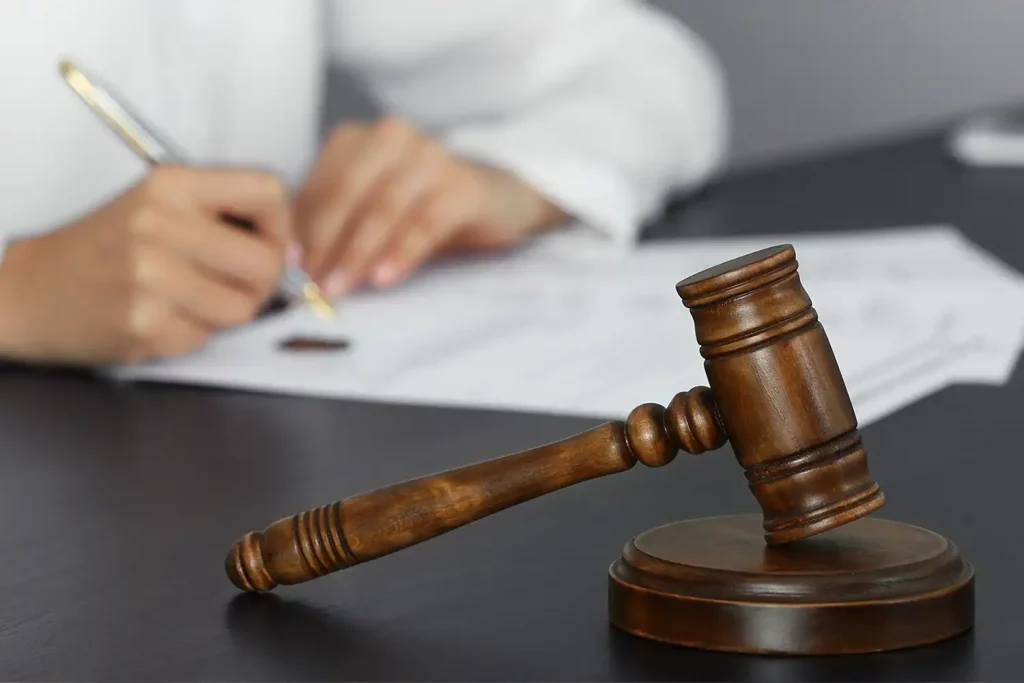Employment tribunals: Preparing your witness statement
This guide gives you detailed advice about how to write your own witness statement in the employment tribunal.
Rated 4.8 Stars in Over 1,000 Reviews
Each person who gives evidence in person at an employment tribunal hearing has to prepare a witness statement.
That includes you as the claimant and any witnesses you may have who are willing and able to confirm your allegations against your employer to the employment tribunal.
What is a witness statement?
The witness statement is a first-person perspective account of what happened to you at work in relation to your tribunal claim(s) and also what has happened since then.
A witness statement is prepared for an employment tribunal not only by you as the claimant, but also by every other person who will appear to give evidence at a tribunal hearing.
How should a witness statement be presented?
A witness statement should be presented in chronological (date) order, with numbered paragraphs, for example:
- On 20 March [date], I did this or I did that.
- On 30 March [date], Mr Smith the Respondent did this or that.
Use one and a half line spacing and at least 12 point font such as Times New Roman.
What writing style should you use?
The way in which your witness statement is written is important as it shows the employment tribunal judge that you know what you are doing: first impressions are important in employment tribunals, as with any court.
Having said that, it’s probably best to get your first draft written using your normal language.
That will make it easier to write and you can tidy it up before it’s sent to the other side.
Avoid using slang and don’t use bad language unless you are quoting something that was said to you, or that you overheard being said about you, relating to your tribunal case.
Use English language correctly (use your spell-checker) and sentences, short paragraphs and good punctuation.
A well-written witness statement can also worry the other side (the employer) and act as a catalyst for negotiating a favourable settlement, by way of a settlement agreement or what’s called a ‘COT3’.
(A COT3 is a type of settlement agreement negotiated after an employment tribunal claim has been started.)

What should be in a witness statement?
The aim is not to repeat the content of your ET1 claim form (or separate Particulars of Claim document if that’s what you used) but instead to add additional information which the tribunal will not have seen before.
Types of additional information would include:
- Comments on the ET3 (a form containing the defence’s written response to your ET1)
- Details of your attempts to mitigate your loss (ie get another job)
- Comments on the documents disclosed by both sides (you won’t have seen these at the ET1 stage) and comments about documents that are clearly missing and perhaps withheld intentionally.
- Comments on any written answers or further information obtained from the respondent (the employer) after proceedings started.
When you are commenting on the documents, it is good practice to refer to page numbers of the file of documents.
The judge will be grateful for this time-saving exercise when trying to cross-reference your statement with the documents that will be used in the tribunal.

Top Tips
Alex Monaco
Get the right written style
Don’t repeat what’s in the ET1 form
Refer to the case documents
When are witness statements exchanged?
Either at the preliminary hearing of the case or by letter, the tribunal will set out a final schedule which will include a date for the exchange of witness statements.
That date will generally be around 2-4 weeks prior to the hearing itself – so quite late on in the process.
Normally you would confirm with the other side that they are ready to exchange statements at the same time, as you don’t want to give them an advantage by sending yours over first.
‘Unless orders’
If they are not ready and their lack of action impedes your own progress with preparations for the full hearing, then you can apply to the tribunal for an ‘unless order’.
This means that unless the other side complies, their defence will be ‘struck out’.
If that happens, the tribunal will award a victory to you on paper, and then have a hearing to work out how much you should be awarded.
As you can imagine with such a draconian remedy, ‘unless orders’ are quite difficult to obtain.
How are witness statements used in tribunals?
The actual witness statement itself will not be read out loud in the tribunal, but instead, it will be ‘taken as read’.
This means that everyone will be expected to have read it to themselves.
Then you will be asked by your lawyer if you have anything to add and the other side’s lawyer will cross-examine you on it.
They can also cross-examine you on other matters not contained within your witness statement.

Next steps
Monaco Solicitors are specialist employment law solicitors who advise and represent employees who are being unfairly treated at work.
In particular, we focus on helping you to negotiate settlements without having to take your case to an employment tribunal.
- We can help existing clients with some tribunal advice and guidance (eg on the ET1 tribunal claim form) if needed.
- We cannot presently represent prospective new clients whose cases can only be resolved at an employment tribunal (eg because their employer won’t negotiate).
- There is a wide range of useful and very practical guides/other resources about employment tribunals on our website for anyone who may have to face an employment tribunal.
For help with negotiating your settlement
If you need help with negotiating a decent settlement agreement, get in touch to find out more about how we can help you:
- By this website link
- By phone on 020 7717 5259
- By email: communications@monacosolicitors.co.uk

